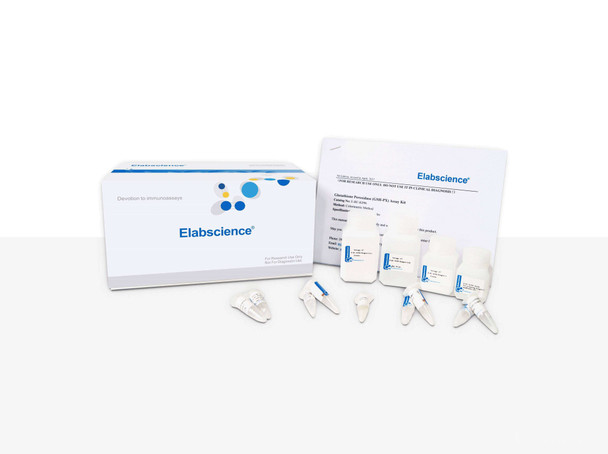Elabscience
Total Antioxidant Capacity (T-AOC) Colorimetric Assay Kit
- SKU:
- E-BC-K136-M
- Weight:
- 0 KGS
- Shipping:
- Calculated at Checkout
Description
Detection principle
A variety of antioxidant macromolecules, antioxidant molecules and enzymes in a system can eliminate all kinds of reactive oxygen species and prevent oxidative stress induced by reactive oxygen species. The total level reflect the total antioxidant capacity in the system. Many antioxidants in the body can reduce Fe3+ to Fe2+ and Fe2+ can form stable complexes with phenanthroline substance. The antioxidant capacity (T-AOC) can be calculated by measuring the absorbance at 520 nm.
Performance characteristics
| Synonyms | T-AOC |
| Sample type | Serum,plasma,whole blood,tissue,cells,cell culture supernatant |
| Sensitivity | 0.62 U/mL |
| Detection range | 0.62-190.43 U/mL |
| Detection method | Colorimetric method |
| Assay type | Enzyme Activity |
| Assay time | 50 min |
| Precision | Average inter-assay CV: 5.6%Average intra-assay CV: 4.8% |
| Other instruments required | Micropipettor, Centrifuge, Incubator, Vortex mixer |
| Other reagents required | Normal saline (0.9% NaCl), PBS (0.01 M, pH 7.4) |
| Storage | 2-8℃ |
| Valid period | 6 months |
Images
Significant decrease of T-AOC was observed in AFB1 group (**P<0.01 vs. Control). Significant increase of T-AOC was observed in B10 treated mice (##P<0.01 vs. AFB1 group).
X Li et al investigate that Bacillus amyloliquefaciens B10 alleviate liver injury induced by aflatoxin B1 as feed additive. Total antioxidant capacity (T-AOC) in mouse liver tissue was determined using T-AOC colorimetric assay kit (E-BC-K136-M).
Dilution of sample
It is recommended to take 2~3 samples with expected large difference to do pre-experiment before formal experiment and dilute the sample according to the result of the pre-experiment and the detection range (0.62-190.43 U/mL).
The recommended dilution factor for different samples is as follows (for reference only):
|
Sample type |
Dilution factor |
|
Human serum |
1 |
|
Human urine |
1-2 |
|
10% Rat liver tissue homogenate |
1 |
|
10% Epipremnum aureum tissue homogenate |
1 |
|
HepG2 cells |
1 |
|
HepG2 cell culture supernatant |
1 |
Note: The diluent is normal saline (0.9% NaCl) or PBS (0.01 M, pH 7.4).
Additional Information
Detection instrument: |
Microplate reader(500-520 nm,optimum wavelength: 520 nm) |
Detection method: |
Colorimetric method |











